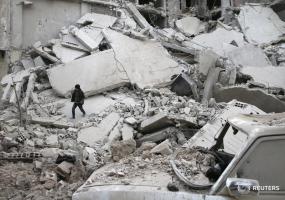Quality Journalism: The View from the Trenches

Reuters Institute Fellow's Paper
Jarmo Raivio, staff writer at the Finnish weekly news magazine Suomen Kuvalehti, has written a very interesting study on what editors and journalists think is quality journalism.
In his research paper, Quality Journalism: The View from the Trenches, Jarmo takes as his starting point the view of many that quality journalism can in some sense 'save' print newspapers. However, there is no agreed definition of quality journalism in the academic literature or in the minds of practitioners.
Jarmo has two main aims in his paper: his first is to examine as thoroughly as possible what people working in various newspapers actually think are the components of quality journalism, whilst the second is to contrast and compare views that different actors in the field have about quality journalism.
To do this, he carries out two sets of comparisons with material gathered from fourteen interviews. The first is between two different countries, Finland and England. The second comparison is between different print-media: tabloid newspapers, broadsheet newspapers and weekly newsmagazines.
Amongst his many conclusions are that 'quality journalism' is defined very much in practical terms. Nearly 90 percent of the 114 statements about quality journalism made in the interviews concerned the more practical aspects of journalism, such as accuracy and good writing - higher principles of journalism were mentioned much less.
Accuracy was the most often mentioned attribute of quality journalism. Even that is 'optional', as a piece can be accurate and still not be quality journalism; in other words just getting the facts right is not enough. A second oft-quoted attribute 'good writing' is also problematic.
As Jarmo concludes, when examined closely, it seems an article can be very well written and still be junk if, for example, the information is inaccurate. But also a piece can be written in a very basic way or even sloppily and still be considered quality, if it contains significant new information, for example. So the term "quality journalism" seems to be highly elastic, maybe even to the point of not being very meaningful at all.
As with all Fellows’ research papers, any opinions expressed are those of the author and not of the Institute.






